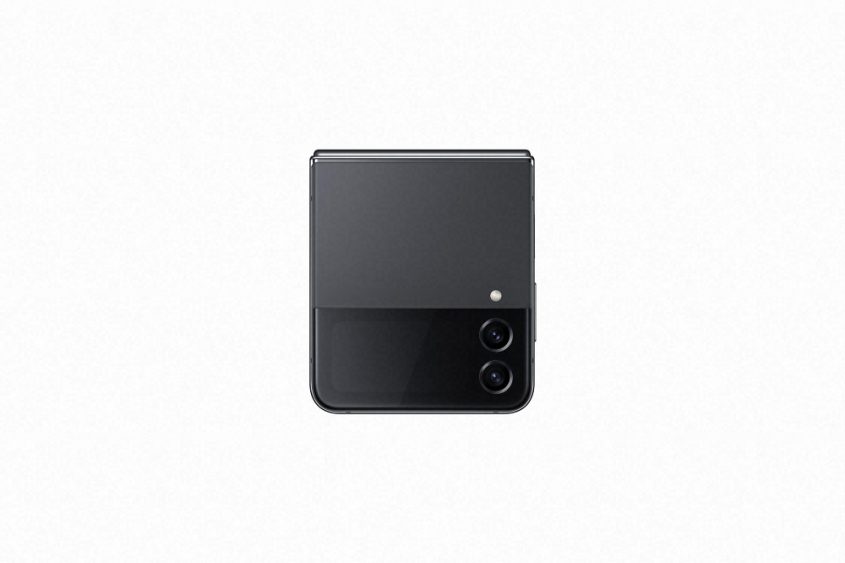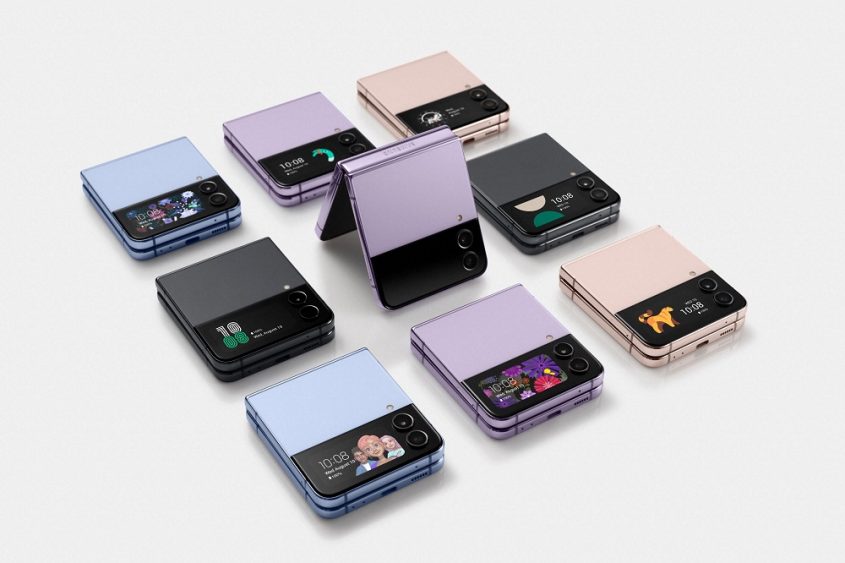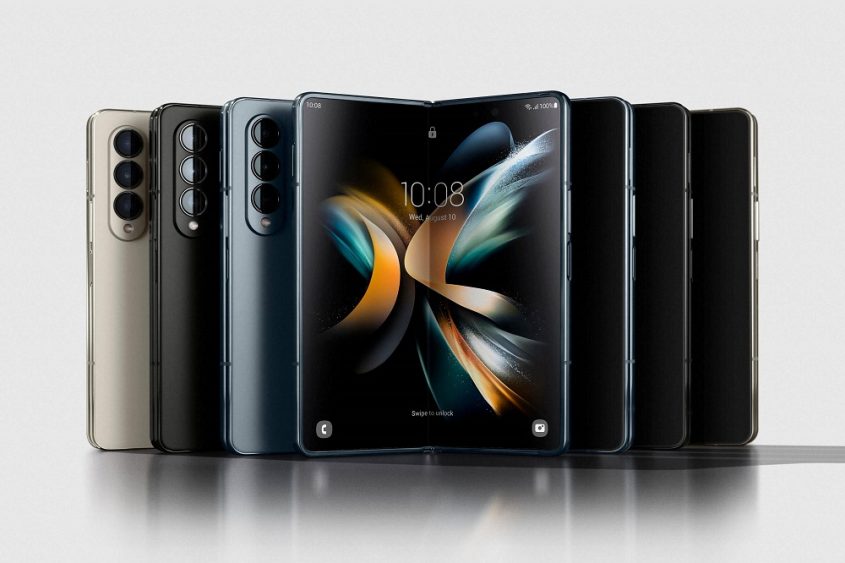Samsung Electronics has introduced two news foldable smartphones to its product portfolio, with the Galaxy Z Flip 4 and Galaxy Z Fold 4.
The Galaxy Z Flip 4 is a small pocketable square that opens up to reveal a 6.7-inch screen inside. Prices for this starts at $999.99.
Meanwhile the Galaxy Z Fold 4 is a skinny phone that opens up to a nearly tablet sized 7.6 inch screen. Prices for this device start at an eye watering $1,799.99.

Galaxy Z Flip 4
It should be remembered that Samsung first introduced the Z Flip folding square back in February 2020, just before the Covid-19 pandemic engulfed the world.
The tech giant has been seeking to make foldable phones mainstream, but the high purchase cost, couple with concerns about folding phone durability, has hampered widespread uptake.
Now over two years later, Samsung has revealed the Galaxy Z Flip 4, which like the Z Flip boasts a compact clamshell design and is the most popular folding phone in the world.
It sticks with the same 6.7-inch screen size of the Galaxy Z Flip 4 as its predecessor, but comes with an “expanded 3,700mAh battery and Super Fast Charging, which means it can charge up to 50 percent in around 30 minutes, keeping users connected when they’re running low.

This compact phone features a slimmer hinge, straightened edges, contrasting hazed back glass and glossy metal frames.
The camera on the Flip 4 has been upgraded with a sensor that is 65 percent brighter
More capabilities have been added to the Flip 4 whilst it is closed or folded, including the ability to make calls, video chat and reply to texts without opening it.
Galaxy Z Fold 4
Meanwhile the Galaxy Z Fold 4 will be the first smartphone to ship with Android 12L, a special version of Android created by Google for large-screen devices, including foldables.
The camera on the Galaxy Z Fold 4 has been upgraded to a 50MP wide lens and a 30x Space Zoom lens. It also comes with a 23 percent brighter sensor and enhanced processing power so “users can capture clear images even at night.”
It boasts a 7.6-inch Main Screen19 with a brighter screen, a 120Hz adaptive refresh rate, and a less visible Under Display Camera (UDC) featuring a new scatter-type sub-pixel arrangement.

It comes with a slimmer hinge, lighter weight and even narrower bezels, and the wider screen enables easier one-handed interactions while using the Cover Screen.
Samsung sought to reassure about any durability issues.
“With our Armor Aluminum frames and hinge cover along with exclusive Corning Gorilla Glass Victus+ on the Cover Screen and rear glass, Z Flip 4 and Z Fold 4 are our toughest foldables ever,” it said.
“Durability of the Main Screen panel is also enhanced thanks to the optimised layer structure, helping to reduce damage from external shock,” it added. “In addition, both Z Flip 4 and Z Fold 4 are equipped with IPX825 water resistance, so users can worry less if they get caught in the rain.”
Both of Samsung’s new folding phones support the company’s S Pen stylus, but there is no place to store it.
Samsung will accept orders for the new phones beginning Wednesday and will ship them on 26 August.
Samsung also unveiled its Galaxy Buds2 Pro, it’s new top-of-the-line earbuds, that boast Hi-Fi 24bit Audio, noise cancellation, whilst being 15 percent smaller.
Evolution, not revolution
James Manning Smith, senior analyst at CCS Insight pointed out that Samsung has opted to take an iterative approach with the Z Flip 4 and Z Fold 4, which are almost indistinguishable from their predecessors to most consumers.
“Although Samsung may be criticised for this, it makes sense to take an iterative approach given foldables devices are currently such as small segment of the overall smartphone market,” said Smith. “In most cases, a consumer buying one of Samsung’s new devices will be getting one for the first time so won’t really have anything to compare it with.”
“Samsung’s iterative approach makes sense,” Smith added. “We suspect it is still learning lots about the complexities of engineering this new category of products and although the phones look very similar to earlier models, they include numerous improvements such as better durability, longer battery life and multiple user experience updates.”
“Samsung has been the market-maker for foldable smartphones over the last three years, and although several Chinese phone makers are now offering rival products, Samsung is in a very strong position globally,” added Smith. “The company will be hoping these products help build on the momentum it has created.”
“Samsung will be hoping the improvements to its foldable smartphone line up make the phones a more reliable rather risky purchases in the eyes of consumers and it should be applauded for its tireless work in developing the category,” Smith said.
“In a homogenous market of black touchscreen rectangles, it makes sense for Samsung to have products for users that want something that stands out from the crowd,” said Smith. “The Z Flip range has been particularly successful in that context, and we expect the Z Flip 4 will help further boost Samsung’s growth aspirations in foldables. The Z Fold is a more challenging form-factor and arguably is a much more experimental device compared to the Z Flip.”
Smith noted that Samsung has worked closely with Google to evolve the Android operating system to be better optimised for a folding device with a larger, more tablet-like display.




